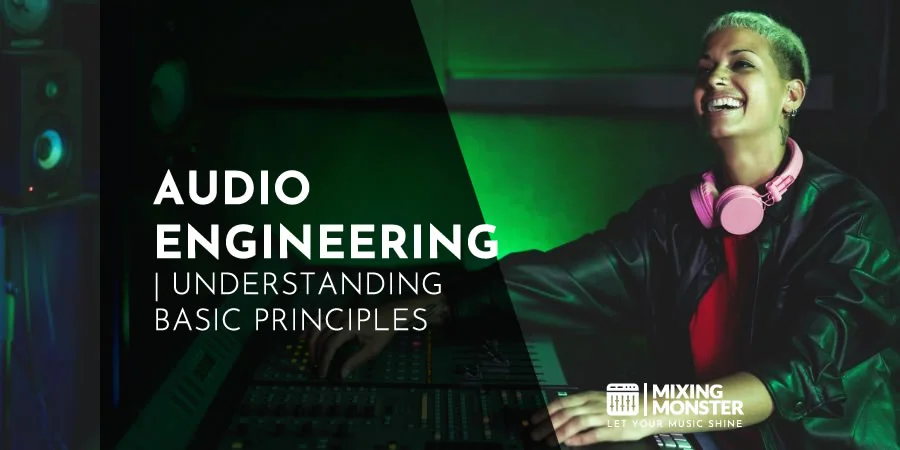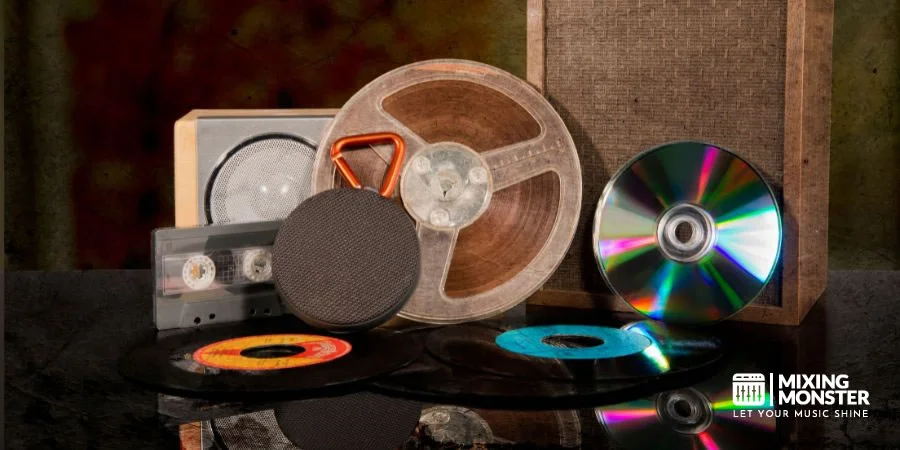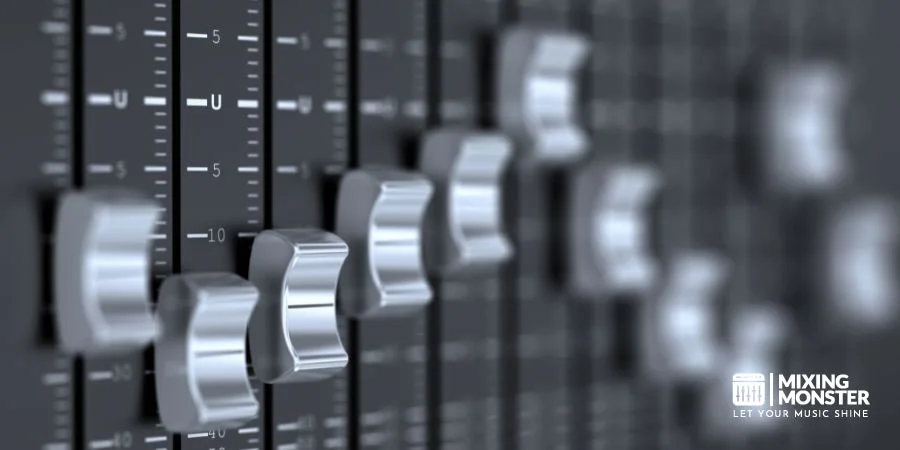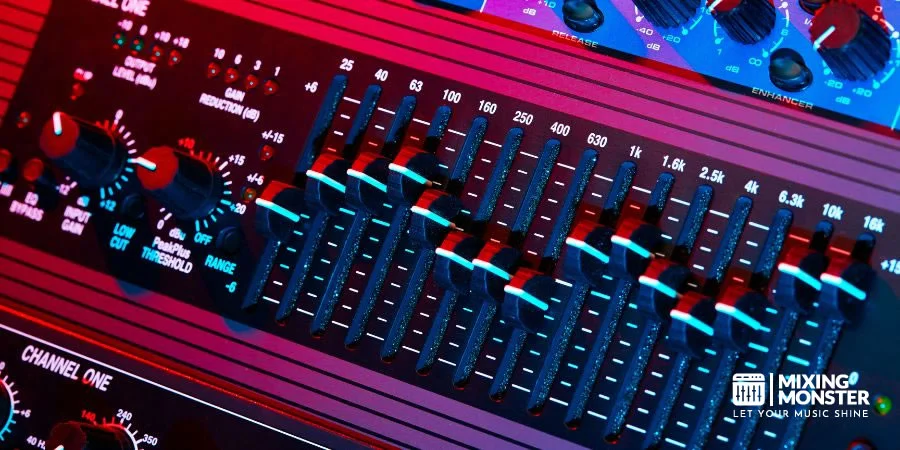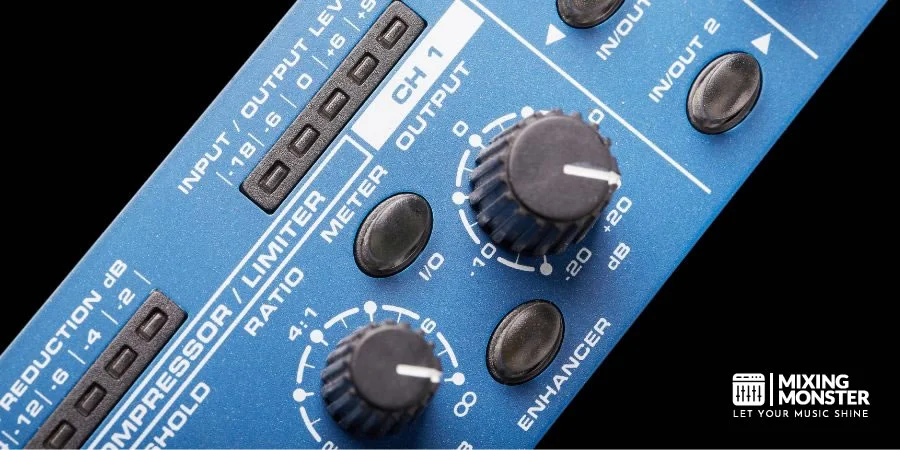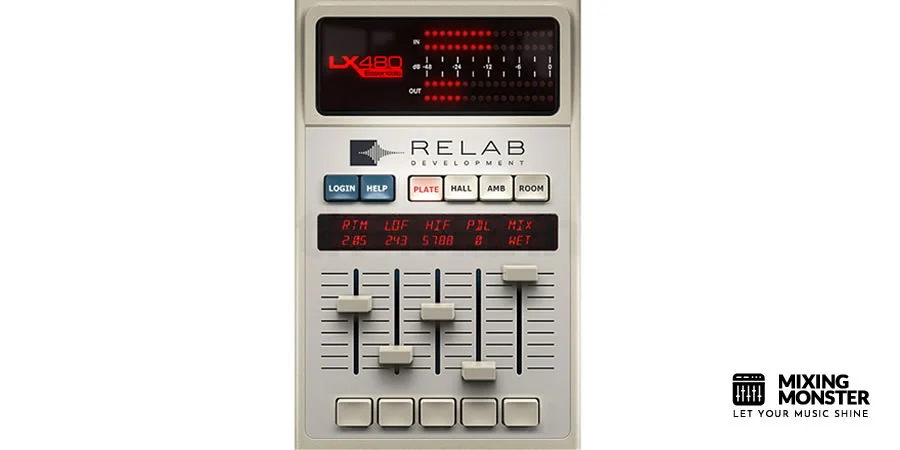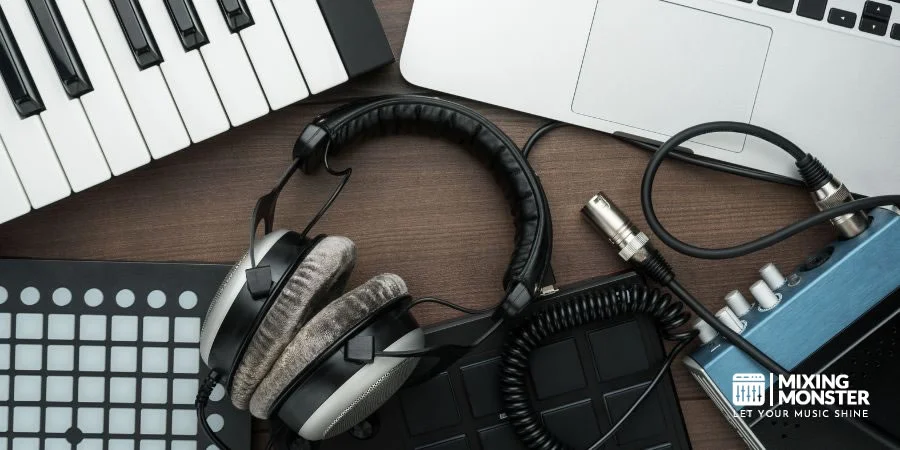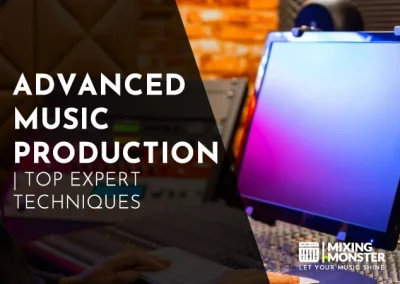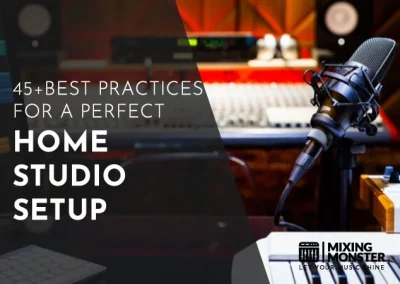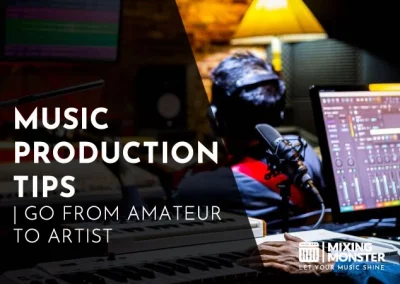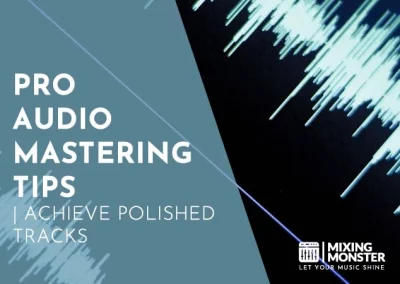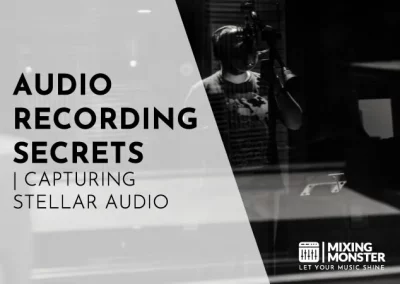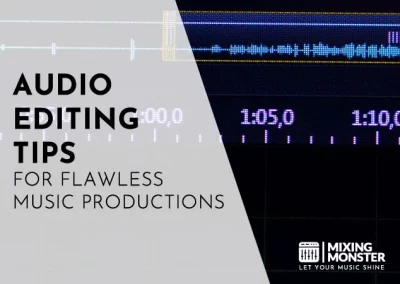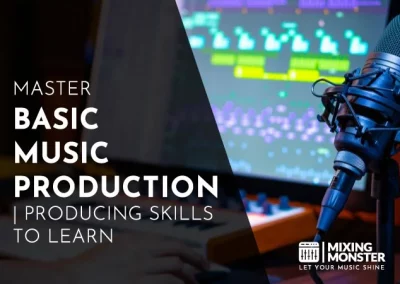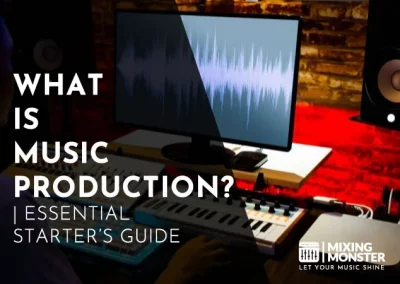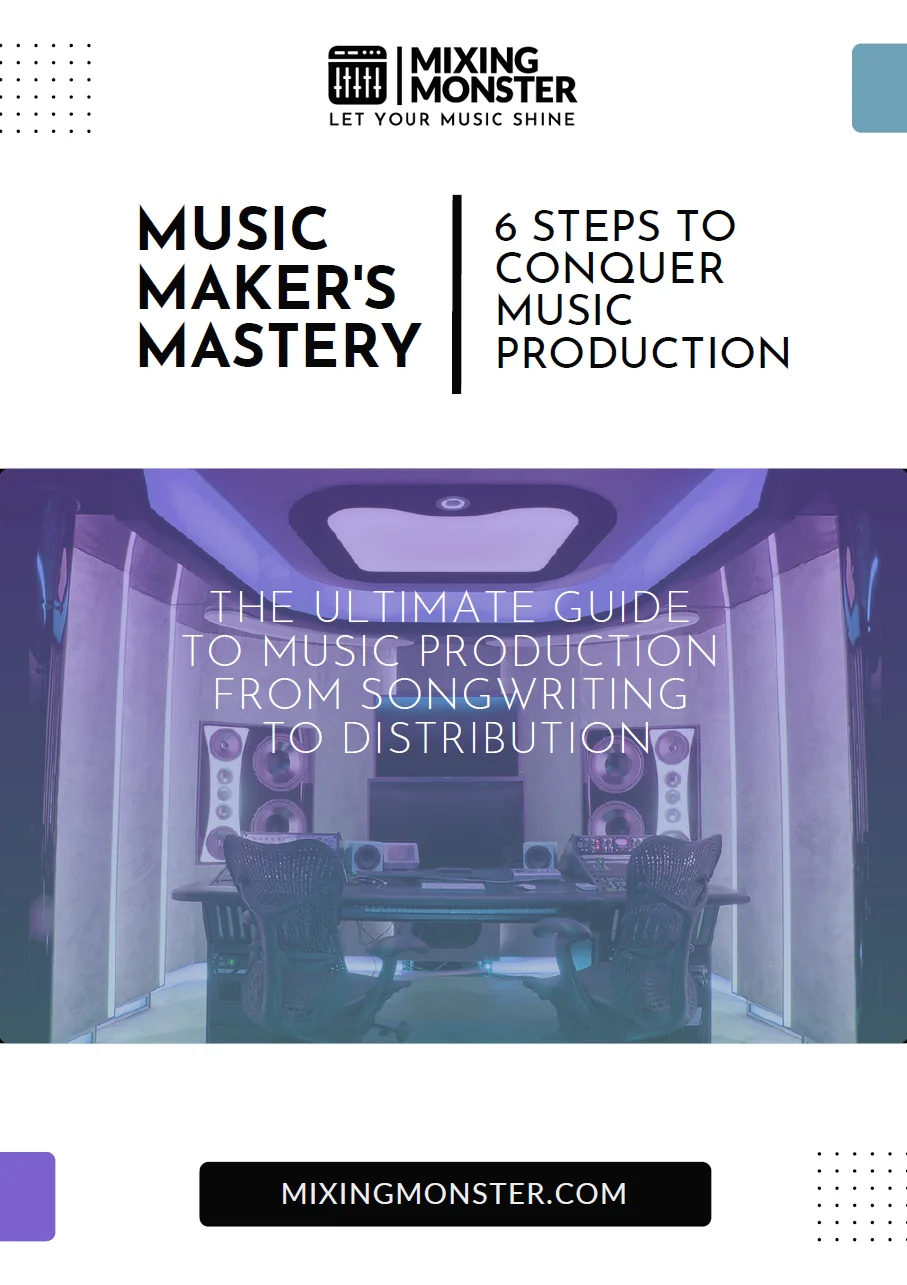Home > Blog > Music > Music Production
Immerse yourself in the fascinating world of audio engineering, where science and artistry converge. In this comprehensive guide, we delve into the core principles of audio engineering, unraveling the mystery behind captivating sounds and harmonies. Brace yourself for a musical journey that translates complex audio concepts into easily digestible knowledge, inviting novices and seasoned audiophiles to tune in.
Audio engineering is a vital branch of sound technology that focuses on recording, manipulating, and reproducing sound. It encompasses various techniques and processes, from microphone placement to mastering tracks, facilitating, creating, and managing high-quality audio for music, film, and broadcasts.
Have you ever wondered how your favorite songs achieve their unique sound or how a movie’s soundtrack adds another layer of emotion to the scene? Dive into the captivating realm of audio engineering, and uncover the science and art behind these auditory experiences that profoundly impact our daily lives.
Table Of Contents
1. Introduction To Audio Engineering
2. Essential Basics Of Audio Engineering
3. Key Principles Of Audio Engineering
4. Exploring Tools For Audio Engineering
5. The Future Of Audio Engineering
6. FAQ

1. Introduction To Audio Engineering
The world of sound is an endless exploration of waves, vibrations, harmonies, and rhythms. At the heart of all these, there’s a unique science that brings it together – audio engineering.
This essential discipline takes the wonder of sound and molds it into a form that speaks to us emotionally, enhancing our music, films, and broadcasts.
Evolution Of Audio Engineering
From the early days of mechanical recording to today’s advanced digital technologies, audio engineering has evolved tremendously. Initially, engineers relied on large physical devices to record, manipulate, and reproduce sound.
Today, we’ve transitioned to a world where software and compact devices can achieve far more sophisticated sound outcomes. A journey that began with vinyl records now includes the intricate digital soundscapes of the 21st century.
Impact Of Modern Technology
Modern technology has revolutionized audio engineering. We’ve seen a move from analog to digital, enabling many possibilities for sound manipulation.
High-speed computers, advanced software, and precision devices allow for unprecedented control over the creation and reproduction of sound, broadening the horizons of what we can achieve in this fascinating field.
2. Essential Basics Of Audio Engineering
Before you dive into the specifics of audio engineering, let’s unpack some of the fundamental concepts. These are the building blocks that form the foundation of all sound production and manipulation.
Understanding The Sound Waves
Sound is a type of energy made by vibrations. These vibrations create sound waves, which move through mediums such as air, and our ears interpret these waves as sound.
The characteristics of these waves – frequency, wavelength, and amplitude – all contribute to how we perceive the sound. Understanding how these elements interact is crucial to mastering audio engineering.
Importance Of Acoustics
Acoustics plays a pivotal role in audio engineering. It’s the study of how sound behaves in an environment. Understanding acoustics helps control how sound is absorbed, reflected, and diffused.
The design of a room can drastically impact the quality of sound. This is why concert halls, recording studios, and even home theatres have specific techniques to optimize sound.
Digital Vs. Analog Sound
The debate between analog and digital sound is ongoing in audio engineering. Analog sound is often praised for its warm, rich quality.
However, digital sound provides a cleaner, more accurate reproduction and is easier to manipulate. Both have their merits, and understanding the differences will enhance your skills as an audio engineer.
This introduction to the fascinating world of audio engineering lays the groundwork for the more advanced concepts. In the following sections, we’ll delve deeper into the fundamental principles of audio engineering, including signal flow, gain staging, equalization, compression, and reverb.
So, if you’re ready for a deeper dive into the sound waves, let’s get started!
3. Key Principles Of Audio Engineering
After diving into the basics of audio engineering, let’s explore the key principles. These fundamental concepts form the backbone of all sound recording, manipulation, and reproduction.
Signal Flow
Sound recording and processing is a path, starting from the sound source and ending in your listener’s ear. Understanding this journey, known as the signal flow, is a crucial aspect of audio engineering.
Components Of Signal Flow
Signal flow comprises various components, each contributing to the final sound product. It starts from the sound source (like a singer or an instrument), moves to the microphone (which converts the sound waves into an electrical signal), then to the preamp (which strengthens the signal).
Next, it goes through the digital audio workstation (DAW) or mixer for processing, then to the amplifier, and finally, it reaches the speakers, translating it back into sound waves.
Importance Of Signal Flow In Audio Engineering
Mastering signal flow is critical in audio engineering. It helps you troubleshoot problems, understand the effect of each component on your sound, and effectively manipulate your audio to get the desired result.
Gain Staging
In audio engineering, managing the levels of your signals, a process known as gain staging, is critical to preserving sound quality.
What Is Gain Staging?
Gain staging is managing the levels of your audio signals at each stage of the signal flow to avoid distortion (from too-high levels) and noise (from too-low levels). It’s about balancing the volume levels throughout the recording and production process.
Why Gain Staging Matters?
Good gain staging ensures a clean and clear sound. Poor gain staging can lead to clipping, distortion, and noise, compromising the quality of your audio.
Equalization
Equalization (EQ) is a powerful tool in the audio engineer’s toolbox, allowing you to balance the frequency content of your audio.
The Role Of Equalization In Sound Production
Equalization helps to shape the sound and balance the frequencies. This can be to correct problems (like removing unwanted frequencies) or to shape the sound to fit your artistic vision creatively.
Basic Techniques Of Equalization
EQ techniques involve:
-
- Boosting or cutting frequencies.
- Understanding the Q factor (the width of your EQ adjustment).
- Using EQ effectively requires understanding frequency bands and how they correspond to different musical sounds. Using different types of EQs such as parametric, graphic, and shelving.
Compression
Compression is another fundamental concept in audio engineering, used to control the dynamic range of your audio.
Understanding Compression In Audio Engineering
Compression reduces the difference between the loudest and quietest parts of your audio, making it more consistent in volume. It involves parameters like threshold, ratio, attack, and release.
Utilizing Compression Effectively
Using compression effectively can enhance your audio’s clarity, bring subtle details forward, and polish your sound professionally. Overuse, however, can result in a dull, lifeless sound.
Reverb And Space Design
Reverb is an essential component in audio engineering, helping to create a sense of space in your mix.
How Reverb Affects Sound Quality
Reverb creates a sense of depth and space in your sound, making it feel more realistic and less ‘in your face.’ It can also glue your mix together, making the different elements feel like they belong in the same space.
Using Reverb For Space Design
To use reverb effectively, you need to consider the size and type of the space you’re trying to emulate (e.g., a small room, a large hall, etc.), the decay time (how long the reverb lasts), and the dry/wet mix (the balance between the unprocessed and processed sound).
From here, we’ve covered the main principles of audio engineering, from signal flow to reverb and space design. These elements all come together to create a final sound pleasing to the listener. But what tools do we use to accomplish this?
In the following sections, we’ll delve into the essential tools for audio engineering and how technology continues to shape this fascinating field.
Stick around, and let’s discover more about sound creation!
4. Exploring Tools For Audio Engineering
In audio engineering, having the right tools can make or break your sound. Each piece of equipment significantly affects how the final audio product turns out, from hardware to software.
Essential Audio Equipment List
Let’s break down some of the most essential tools in an audio engineer’s arsenal:
- Microphones:
Used to capture sound and convert it into an electrical signal. - Audio Interface:
The hardware that connects your gear to your computer, converting an analog signal to digital and vice versa. - Monitors:
Special speakers designed for studio use, providing a flat frequency response for accurate listening. - Headphones:
Essential for detailed listening, especially in noisy environments. - Mixer:
Used to adjust levels, EQ, and often includes effects like reverb and compression. - DAW (Digital Audio Workstation):
Software for recording, editing, and mixing music. - Plugins:
Software add-ons for your DAW, providing a range of effects and processing tools.
Investing in the equipment for audio engineering is helpful to reach your specific music production goals. Remember that your skills and critical listening abilities are just as essential as the tools you use.
Latest Software Innovations
The software side of audio engineering has seen incredible innovation over the years. Today’s DAWs offer various advanced recording, editing, mixing, and mastering features.
Virtual instruments can emulate any sound imaginable, and plugins have replaced racks of hardware with high-quality digital effects. These advances provide a wealth of creative possibilities for the modern audio engineer.
Understanding audio engineering tools and how to use them effectively is a significant part of mastering this discipline. But with technology constantly advancing, what does the future hold for audio engineering?
Let’s peek into the crystal ball in the next section.

5. The Future Of Audio Engineering
In the ever-evolving world of audio engineering, it’s crucial to look ahead and consider future trends. Technological advancements and shifting consumer demands continually reshape the industry.
Expected Trends In Audio Engineering
Here are a few trends we expect to see gaining traction in the field of audio engineering:
- Immersive Audio:
With the advent of virtual and augmented reality, immersive audio technologies are set to become increasingly important. - Artificial Intelligence:
AI will likely play a significant role, from automating mundane tasks to creating music. - High-Resolution Audio:
As bandwidth improves, the demand for high-resolution audio will likely increase. - Cloud-Based Collaboration:
Remote work trends have led to increased cloud-based collaboration tools for audio professionals. - Green Audio Technology:
As with many industries, there’s a push towards more environmentally friendly practices and technology.
Preparing For Future Changes In The Industry
The future of audio engineering is exciting and full of potential. To stay relevant, audio engineers must continue to adapt and evolve.
This includes staying up-to-date with the latest technologies and trends, continually improving your skills, and being flexible and ready to meet new challenges. So, what are you waiting for?
That brings us to the end of our exploration of audio engineering! We hope this guide deepened your understanding and piqued your curiosity to learn more. Remember, the world of sound is right at your fingertips…
Happy Engineering!
6. FAQ
- What Are The Basic Principles Of Audio Engineering?
Audio engineering involves capturing, manipulating, and reproducing sound. Fundamental principles include understanding signal flow, gain staging, equalization, compression, and reverb. - How Has Audio Engineering Evolved With Technology?
Technological advancements have significantly shaped audio engineering, with digital technologies replacing much of the older analog equipment. Modern DAWs offer vast creative possibilities, and digital plugins now emulate expensive hardware. - What Tools Are Essential For Audio Engineering?
Essential tools include microphones, audio interfaces, monitors, headphones, mixers, DAWs, and plugins. Each plays a role in capturing and shaping sound. - Why Are The Basics Of Audio Engineering Important?
Understanding the basics provides a foundation for all audio work. It allows you to effectively capture and manipulate sound, troubleshoot issues, and use equipment and software to its full potential. - What Future Trends Are Expected In Audio Engineering?
Trends to watch include immersive VR and AR audio, AI-driven technologies, high-resolution audio, cloud-based collaboration tools, and eco-friendly practices.

